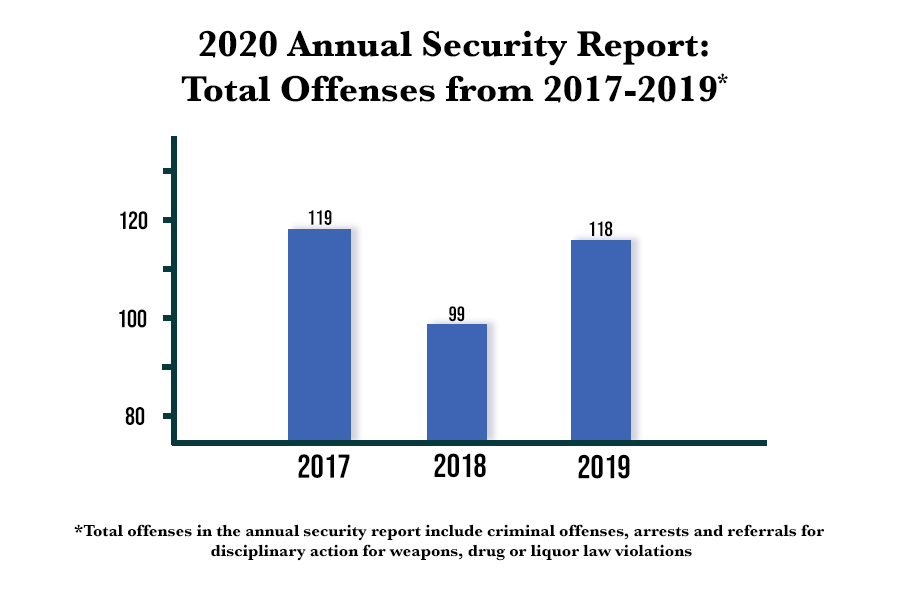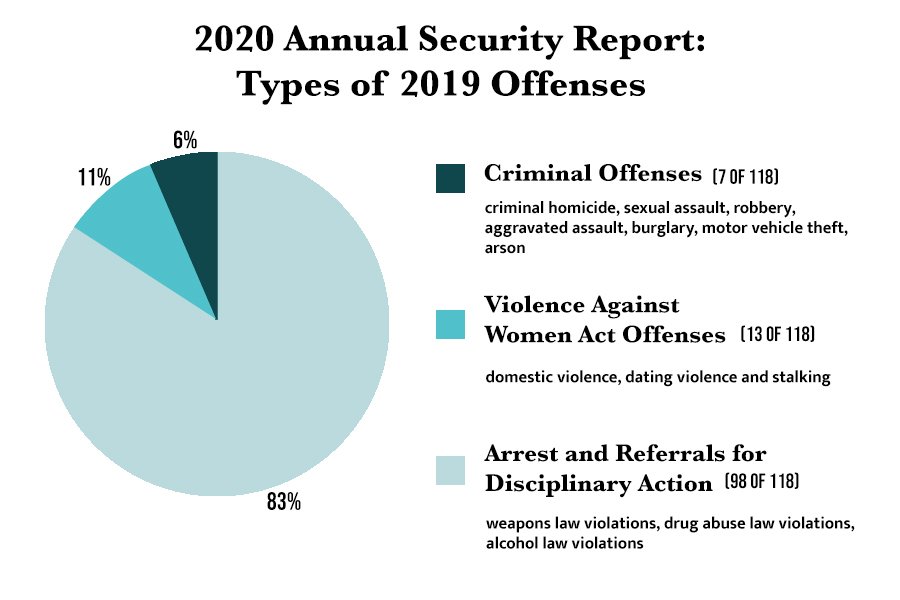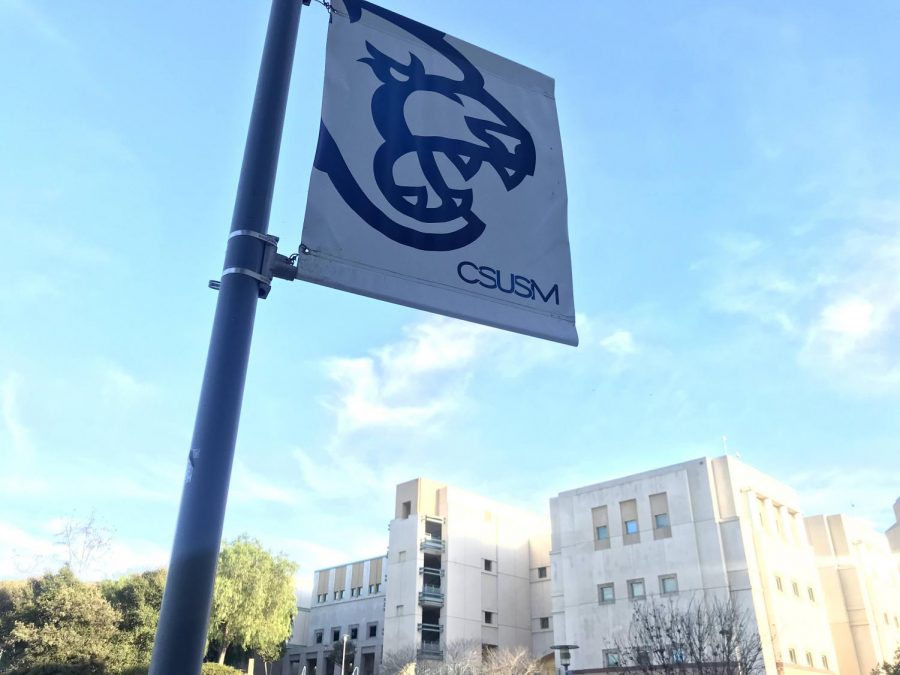Annual security report shows increase in reported crime
CSUSM remains one of the safer colleges in the country
CSUSM’s annual security report showed that there was a net increase in reported crimes and violations of state and local drug, liquor and weapons laws in 2019 compared to the previous year.
February 5, 2021
To see this story in video form, click here.
CSUSM’s annual security report revealed that 2019 had a net increase in reported crimes and violations of state and local drug, liquor and weapons laws compared to the previous year.
The report contains statistics on calendar years 2017, 2018 and 2019. On the main campus, there were 118 offenses in the report’s most recent year, 2019, compared to 2018’s 99 offenses. 2017 had 119 offenses.

Despite the increase, in the National Council for Home Safety and Security’s list of 2021’s safest colleges, CSUSM ranked fourth in California and 92nd in the country.
CSUSM publishes a security report each year to comply with the Clery Act, a law that was passed in 1990 to provide information on campus crime statistics and safety policies and resources.
“[The report] fulfills CSUSM’s desire to ensure a safe and supportive space for all members of our campus community,” wrote Brittani Brown, Clery Director and Assistant Vice President of Compliance and Operations, in an email to The Cougar Chronicle.
“We encourage students and our campus community to familiarize themselves with the Annual Security Report. The report provides an abundance of resources for students, including information about policies, programming and safety notifications,” Brown wrote.
The 2020 annual security report was released on Dec. 11. Clery reports are usually due on Oct. 1, but due to COVID-19, the Department of Education extended the 2020 deadline to Dec. 31.
Geographically, Clery reports cover reported crimes that occured on campus and public property that immediately borders campus.

Statistics are obtained from several sources, including the University Police Department, the Dean of Students, the Office of Residential Life, the Title IX office, the Office of Athletics, the Office of Human Resources, Faculty Affairs, individuals designated as “Campus Security Authorities” (such as safety escorts) and local law enforcement agencies.
Reported Clery statistics are broken into four categories: criminal offenses (criminal homicide, sexual assault, robbery, aggravated assault, burglary, motor vehicle theft and arson), Violence Against Women Act offenses (domestic violence, dating violence and stalking), arrests and referrals for disciplinary action (for violations of weapons, drug and liquor law) and hate crimes.

Aside from 2019’s net increase of total offenses compared to 2018, there were some statistics that stood out. For example, while the number of reported rapes decreased between 2018 and 2019, the number of reported stalking, dating violence and domestic violence incidents each went up between 2018 and 2019.
In other offenses, there was no significant change. The total number of arrests and referrals for disciplinary action for violations of weapons, drug and liquor law has remained fairly similar over the past three years: it was 96 in 2017, 90 in 2018 and 98 in 2019.
And there have been no reported incidents of murder, manslaughter, incest, arson or a hate crime at CSUSM for the last three years.
“CSUSM is a safe campus and we credit much of that to our collegial spirit and fabulous prevention programs and networks,” wrote Brown. “I want to take the opportunity to highlight that Clery is not one person (or two) but really a network across campus (Clery team, UPD, Title IX, Athletics, Dean of Students, the Clery Compliance Team and Statistics team, our Campus Security Authorities and so many more!)”
To learn more about the Clery Act, visit csusm.edu/clery/index.html. To view the 2020 annual security report, click here.


